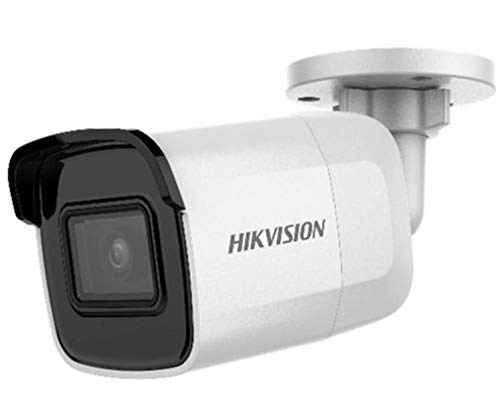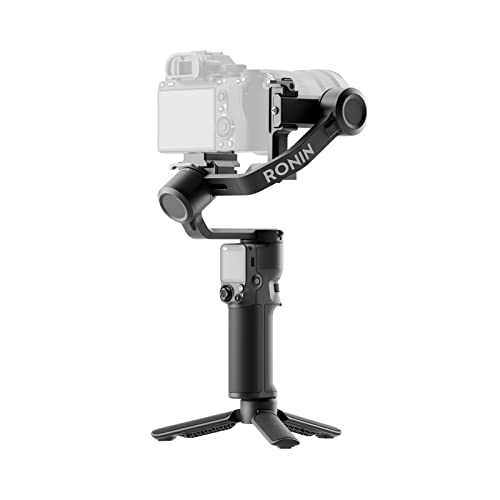




Security cameras are a common feature in many workplaces today, serving as a tool to monitor and protect property, assets, and employees. However, the use of security cameras in the workplace raises important questions about privacy and employee rights. One key issue is when and how employees should be notified about the presence of security cameras in their work environment.
In most jurisdictions, employers are required by law to inform their employees if they are being monitored by security cameras. This notification is typically provided through signage or a written policy that outlines the purpose of the cameras, where they are located, and who has access to the footage. Providing clear and transparent communication about the use of security cameras helps to establish trust and maintain a positive work environment.
It is important for employers to strike a balance between protecting their business interests and respecting the privacy rights of their employees. Properly notifying employees about the presence of security cameras can help prevent potential legal issues and violations of privacy laws. By following best practices and communicating openly with employees, employers can create a safe and secure work environment for everyone.
When Should Employees Be Informed About Surveillance Cameras?
It is important for employers to inform their employees about the presence of surveillance cameras in the workplace to ensure transparency and maintain trust. Employees should be notified about surveillance cameras:
| 1. Prior to Installation | Employees should be informed before surveillance cameras are installed in the workplace. This allows employees to understand the reasons for the cameras and how they will be used. |
| 2. In the Employee Handbook | Information about surveillance cameras should be included in the employee handbook or workplace policies. This ensures that all employees are aware of the camera system. |
| 3. During Onboarding | New employees should be informed about surveillance cameras during the onboarding process. This helps set expectations from the start. |
| 4. When Changes are Made | If there are any changes to the surveillance camera system or its usage, employees should be promptly notified to stay informed. |
Legal Requirements for Notifying Employees of Surveillance Cameras
When implementing surveillance cameras in the workplace, it is crucial for employers to comply with legal requirements regarding employee notification. Failure to inform employees about the presence of security cameras can lead to legal repercussions and breaches of privacy rights.
Key Points to Consider:
Employers must notify employees if surveillance cameras are installed in areas where they have a reasonable expectation of privacy, such as bathrooms, changing rooms, or break areas.
Notification should be provided in writing and clearly displayed in visible areas to ensure that employees are aware of the surveillance.
Employees should be informed of the purpose of the surveillance, the type of data collected, who has access to the footage, and how long it will be retained.
Employers should also establish policies outlining the acceptable use of surveillance footage and the consequences of misuse.
| Legal Requirement | Description |
|---|---|
| State Laws | Some states have specific requirements regarding employee notification of surveillance cameras. Employers must comply with these laws to avoid legal penalties. |
| Union Agreements | If the workplace is unionized, employers may need to negotiate with the union regarding the use of surveillance cameras and employee notification. |
| Employee Consent | In some jurisdictions, employee consent may be required before implementing surveillance cameras. Employers should obtain written consent to ensure compliance. |
Importance of Employee Awareness in Surveillance Camera Placement
Employee awareness plays a crucial role in the placement of surveillance cameras in the workplace. It is essential for employees to be informed about the presence of security cameras, their locations, and the purpose of their installation. This awareness helps create a transparent and trustful environment, where employees understand the need for surveillance and how it contributes to their safety and security.
By notifying employees about the placement of security cameras, employers demonstrate respect for their privacy and build a sense of mutual trust. This transparency can also deter misconduct and improve employee behavior, as individuals are more likely to adhere to company policies and standards when they know they are being monitored.
| Benefits of Employee Awareness: | – Enhanced security and safety |
| – Improved compliance with company rules | |
| – Prevention of theft and vandalism |
Overall, employee awareness in surveillance camera placement fosters a positive work culture, promotes accountability, and helps maintain a productive and secure environment for both employees and employers.
When to Notify Employees About Surveillance Cameras in the Workplace
Employers must be mindful of their legal obligations when implementing surveillance cameras in the workplace. One crucial aspect is notifying employees about the presence of these cameras to ensure transparency and compliance with privacy regulations.
Notification Requirements
Employers are generally required to notify employees about the use of surveillance cameras in the workplace. The specific notification requirements may vary by jurisdiction, but it is essential to inform employees about the presence of cameras, the purpose of surveillance, and how the footage will be used.
Best Practices for Notification
It is advisable for employers to clearly communicate the surveillance policy to employees through written notices, employee handbooks, or training sessions. Additionally, posting signs in visible areas to alert employees of camera locations can help reinforce awareness of surveillance measures.
| Key Points: | Notify employees about surveillance cameras |
|---|---|
| Follow legal requirements and best practices | |
| Ensure transparency and compliance |
Best Practices for Communicating About Security Camera Installation
When installing security cameras in the workplace, it is essential to communicate effectively with employees to ensure transparency and maintain trust. Here are some best practices for communicating about security camera installation:
1. Notify employees in advance: Inform employees about the installation of security cameras well in advance to give them time to prepare and address any concerns they may have.
2. Explain the purpose: Clearly communicate the reasons for installing security cameras, such as enhancing security, preventing theft, or monitoring productivity, to help employees understand the need for them.
3. Address privacy concerns: Assure employees that their privacy will be respected and outline the specific areas that will be monitored by the security cameras to alleviate any privacy concerns.
4. Provide training: Offer training sessions to educate employees on how to operate the security cameras, access footage, and handle any security incidents effectively.
5. Encourage feedback: Create an open dialogue with employees and encourage them to share any feedback or concerns they may have about the security cameras to address them promptly and maintain a positive work environment.
Ensuring Employee Privacy Rights When Using Surveillance Cameras
While it is important for businesses to implement security measures such as surveillance cameras to protect their assets and employees, it is equally crucial to respect the privacy rights of employees. To ensure that employees’ privacy rights are upheld when using surveillance cameras in the workplace, employers should follow certain guidelines:
1. Notify employees: Employers should inform employees about the presence of surveillance cameras in the workplace. This can be done through clear signage or written notices. Employees have the right to know when they are being monitored.
2. Limit surveillance to necessary areas: Surveillance cameras should only be used in areas where there is a legitimate need for security monitoring. Areas such as restrooms and changing rooms should never be under surveillance.
3. Store footage securely: Any footage captured by surveillance cameras should be stored securely and accessed only by authorized personnel. Employers should have strict policies in place to prevent unauthorized access to the footage.
4. Retain footage for a limited time: Employers should establish a clear policy on how long surveillance footage will be retained. Keeping footage for longer than necessary can infringe on employees’ privacy rights.
By adhering to these guidelines, employers can strike a balance between ensuring workplace security and respecting the privacy rights of their employees.
Employee Rights and Consent in Surveillance Camera Monitoring
Employee rights and privacy are important considerations when implementing surveillance camera monitoring in the workplace. It is crucial to inform employees about the presence of security cameras and to obtain their consent in accordance with legal requirements.
Notification: Employers must notify employees about the use of surveillance cameras in the workplace. This notification should be provided in writing and clearly explain the purpose of the cameras, the areas being monitored, and the intended use of the footage.
Consent: Employees have the right to consent to being monitored by surveillance cameras. Consent should be voluntary and informed, meaning employees understand the implications of being recorded and how the footage will be used.
Legal Compliance: Employers must comply with relevant laws and regulations governing surveillance camera monitoring, such as data protection and privacy laws. Failure to do so can result in legal consequences and violations of employee rights.
By respecting employee rights and obtaining proper consent, employers can maintain a balance between security needs and individual privacy in the workplace.
Handling Employee Concerns and Questions About Surveillance Cameras
As an employer, it is important to address any concerns or questions that your employees may have about the presence of surveillance cameras in the workplace. Open communication is key to maintaining a positive work environment and ensuring that employees feel comfortable and respected.
Listen to Employee Concerns
Take the time to listen to your employees’ concerns about surveillance cameras. Encourage open dialogue and provide a safe space for employees to express their feelings and ask questions. It is essential to address any issues raised and provide clear and transparent information about the purpose and use of the cameras.
Provide Information and Training
Offer training sessions or informational materials to educate employees about the reasons for installing surveillance cameras, how the footage is used, and the policies in place to protect their privacy. Make sure employees understand their rights and how their personal information is safeguarded.
By proactively addressing employee concerns and questions about surveillance cameras, you can promote a culture of trust and transparency in the workplace.
Maintaining Transparency and Trust in Employee Surveillance Policies
One of the key factors in implementing security cameras in the workplace is maintaining transparency and trust with employees. When employees are aware of the presence of security cameras and understand the reasons for their use, it can help create a sense of security and accountability.
Employers should establish clear policies regarding the use of security cameras, including when and where they are allowed to be installed, how footage will be used, and who will have access to it. It is important to communicate these policies to employees in a timely manner and ensure that they understand their rights and responsibilities.
Regular communication and updates about the surveillance policies can help alleviate any concerns or uncertainties employees may have. Employers should also provide training on the proper use of security cameras and ensure that employees know how to report any issues or violations.
| Key Points to Consider: |
|---|
| Transparency in communication |
| Clear policies on camera usage |
| Employee training and awareness |
| Regular updates and feedback mechanisms |






